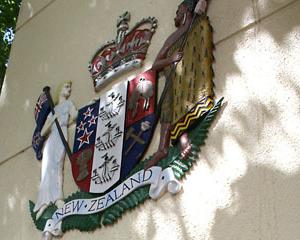Neil Robert Ford (56), a senior constable with the police Commercial Vehicle Inspection Unit, is on trial in the Dunedin District Court accused of committing perjury.
The Crown says Ford caused the collision between his police Holden Rodeo and a Honda driven by a teenager near Alexandra in July 2005 but lied about it in court.
Ford claimed he was not doing a U-turn, as alleged by the other driver, but was making a right-hand turn into a driveway when the other car "T-boned" his utility vehicle in Earnscleugh Rd.
As a result of his evidence, the other driver was convicted of careless driving causing injury.
But people campaigning on behalf of 17-year-old Shane Cribb obtained fresh eyewitness evidence and an independent analysis of the crash.
This cast doubt on whether the accident happened the way Ford claimed and a rehearing was granted.
Police then offered no evidence and Mr Cribb's conviction was quashed.
But an investigation began into the evidence given by Ford, a police gold-merit rated driver.
Ford was then charged with perjury, an allegation he strongly denies.
Defence lawyer Nic Soper described Ford as a man with a dependable 30-year record with the MOT and the police.
And he said, while it was accepted the evidence Ford gave at the January 2006 court hearing about where his vehicle was before he turned, and the manoeuvre he carried out, was incorrect, the issue for the jury was whether he lied with the intention of misleading the court.
Ford had been unwavering and adamant that the evidence he gave about the accident, the position of his vehicle and what he did was honest, and genuinely what he believed had happened, Mr Soper said.
Ford believed his memory was true and accurate and that he was telling the truth when he gave the evidence.
But he now accepted, as a result of later expert evidence, that "what he said was wrong, his memory was incorrect, his recollection fallible".
"He does so with very real reluctance because he believed what he said happened - that's what his memory tells him, but it doesn't square with the facts," Mr Soper said.
Ford's trial, before Judge Paul Kellar and a jury reduced to 11 after one juror was discharged because of a technicality, is expected to take most of the week.












